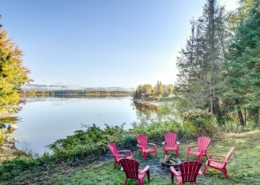San Francisco, California, has implemented specific regulations for short-term rentals, including those listed on Airbnb. These regulations were enacted to address concerns related to housing availability and affordability, as well as the impact of short-term rentals on residential neighborhoods.
Hosts in San Francisco are required to register their short-term rental with the city and obtain a Short-Term Residential Rental Registration Certificate. To be eligible for registration, the host must be a permanent resident of the unit they are renting out and must live there for at least 60 days per year. Additionally, hosts are limited to renting out their primary residence for a maximum of 90 days per calendar year when they are not present.
Furthermore, hosts must adhere to specific hosting rules to maintain compliance. These rules include providing guest information to the city, displaying their registration number on all advertisements, and retaining records of guest stays for a minimum of two years.
San Francisco has also implemented a “One Host, One Home” policy, which prohibits hosts from renting out multiple residential properties for short-term stays. This policy aims to preserve housing availability and prevent the conversion of long-term rental units into dedicated short-term rentals.
To ensure the collection of appropriate taxes, hosts are required to register with the city’s Office of the Treasurer and Tax Collector and collect and remit the Transient Occupancy Tax, which is currently set at 14%. Airbnb automatically collects and remits this tax on behalf of hosts, simplifying the process.
Enforcement of these regulations is taken seriously in San Francisco, and penalties can be imposed for non-compliance. The city actively monitors short-term rental platforms for listings that are not registered or exceed the allowed rental limits.
It’s important for hosts to familiarize themselves with the specific requirements and regulations imposed by the city of San Francisco. Staying informed and compliant with the rules ensures a responsible and legal operation of short-term rentals in the city while preserving the availability of long-term housing options for residents.
Airbnb hosts can rent out entire properties, private or shared rooms.
- 5 355 – Airbnb listings in total
- 3 486 (65%) – entire properties
- 1 834 (34%) – private rooms
- 35 (1%) – shared rooms.
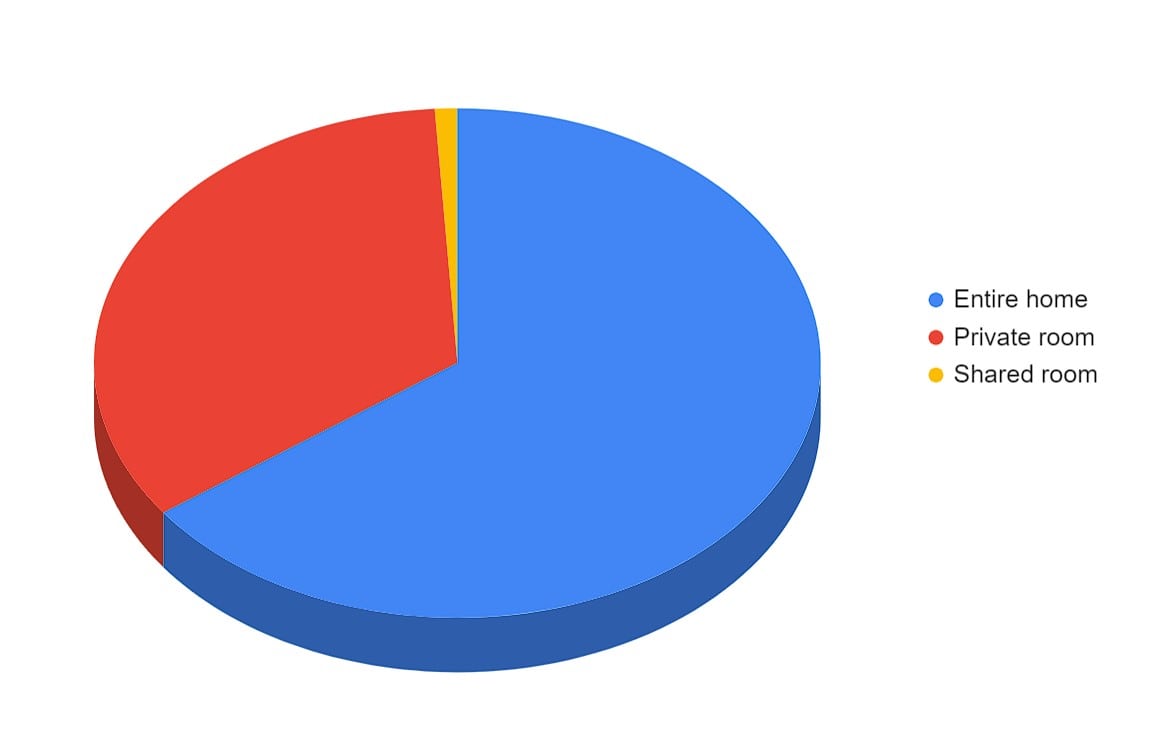
3 486 (65%) – entire properties
1 834 (34%) – private rooms
35 (1%) – shared rooms
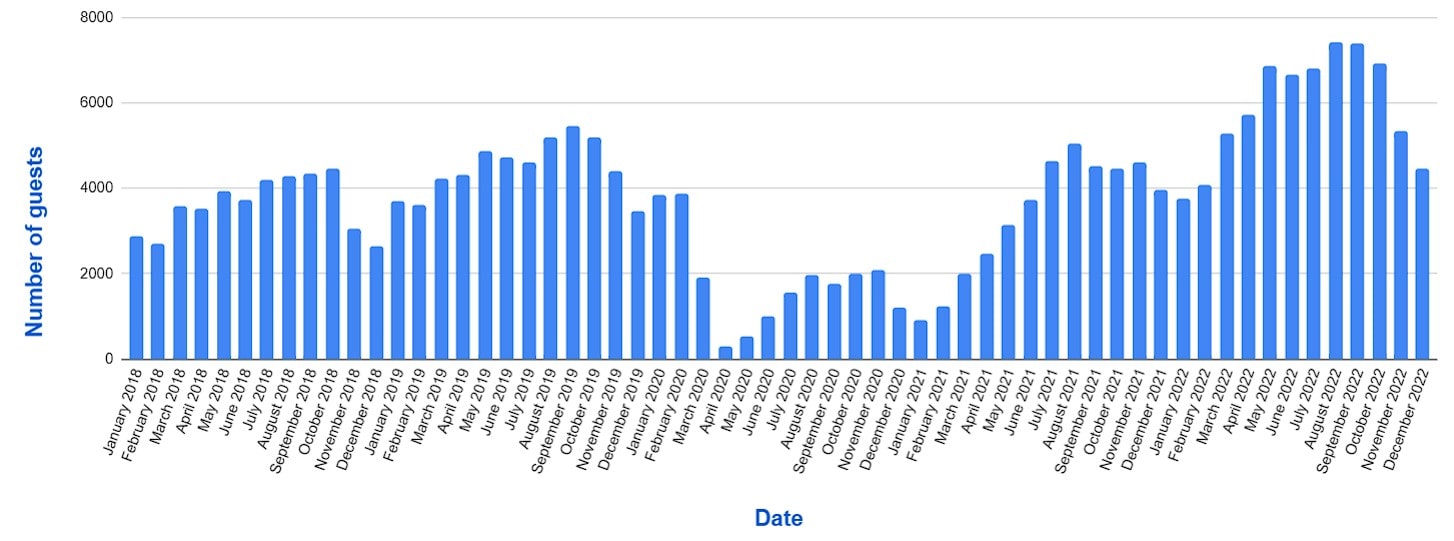
Airbnb guests may leave a review after their stay, and these can be used to estimate Airbnb guests activity. However not all guests leave a review, so the actual activity could be higher.
- $255 – average daily rate
- 79% – occupancy rate
- $3 678 – revenue.
There are hosts who have multiple listings and some that have single listings on the Airbnb marketplace. It is possible for a host to list multiple properties that they have available or different rooms which are available on the same property.
- 81% – listed on Airbnb
- 12% – listed on Vrbo
- 7% – listed on both.
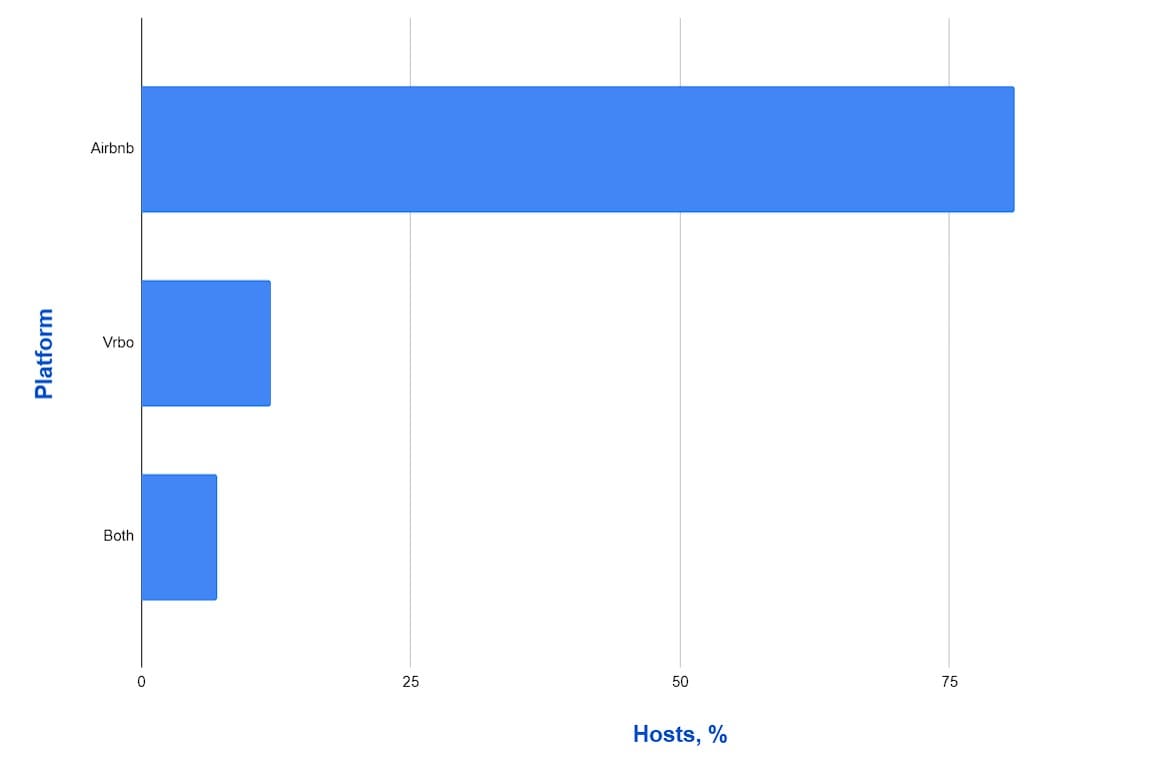
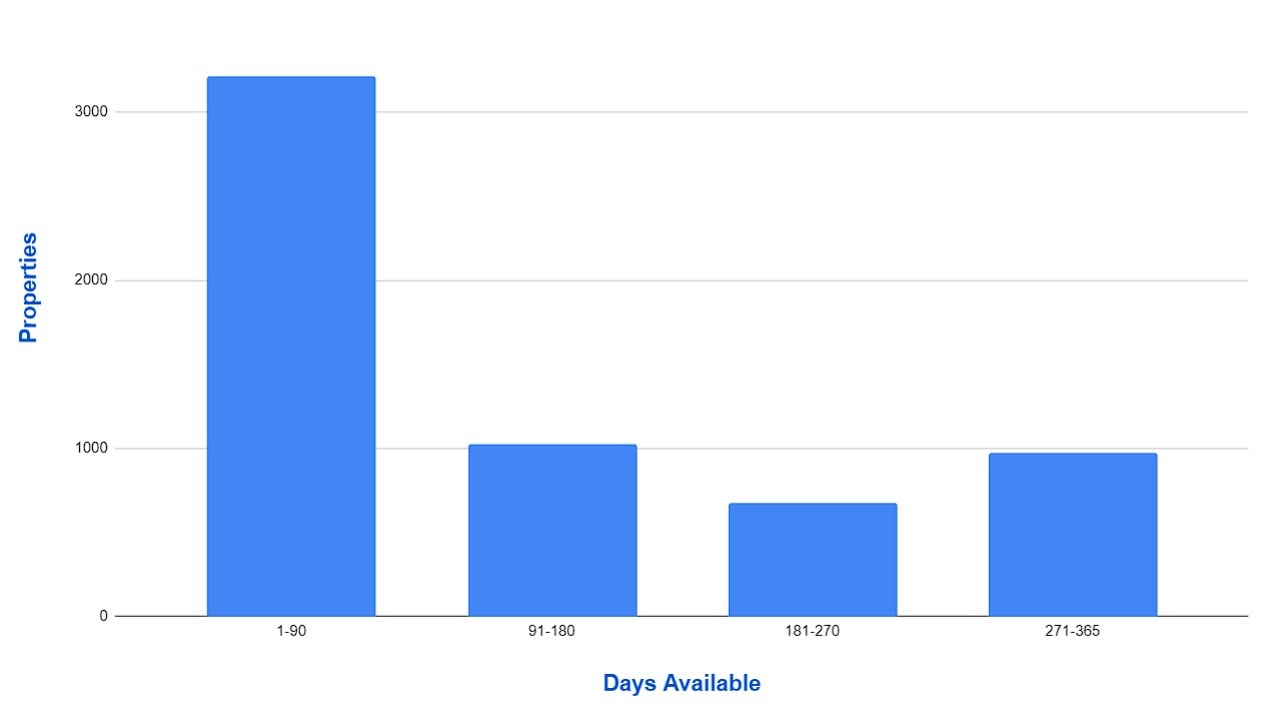
Airbnb hosts have full freedom when it comes to selecting how available their property or rooms are. For instance, by utilizing the calendar tool, a host can set their property to be available for just one week in a year. Alternatively, another example is a host setting their rooms to be available for 11-months out of the 12.
- Available
- 1-90
- 91-180
- 181-270
- 271-365
- Properties
- 3212
- 1029
- 676
- 977
- %
- 54
- 17
- 11
- 17




